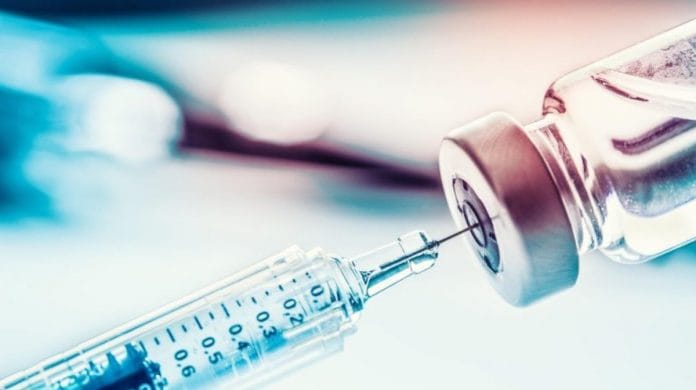Eli Lilly & Co. said enrollment of participants in a clinical trial of its antibody treatment for Covid-19 has been paused due to a potential safety concern, pushing down the company’s shares.
An independent data safety monitoring board recommended pausing enrollment in the U.S. government-sponsored trial, a company spokeswoman said in a statement. Lilly didn’t provide information about what caused the panel to recommend the pause.
Indianapolis-based Lilly is one of several companies developing so-called monoclonal antibody therapies, which can potentially aid those with early Covid-19 symptoms from developing severe cases, and is also being studied as a prophylaxis. It’s seen by pharmaceutical executives and government health officials as a viable bridge to a vaccine.
The class of treatments was spotlighted when President Donald Trump received a similar therapy developed by Regeneron Pharmaceuticals Inc after he was infected with Covid-19. Trump has since called that therapy a “cure,” and said he would push for it and other similar treatments to get approval in the U.S.
Shares of Lilly declined as much as 3.8% in afternoon trading on Tuesday in New York. Lilly said it is supportive of the decision by the independent monitoring board to “cautiously ensure the safety of the patients participating in this study,” according to spokeswoman Kathryn Beiser.
Also read: UK inches closer to infect healthy people with Covid to help vaccine research
In August, the U.S. National Institutes of Health began testing Lilly’s monoclonal antibody known as LY-CoV555 in hospitalized Covid-19 patients. The 300-participant trial known as ACTIV-3 will also treat patients in both the placebo arm and antibody arm with Gilead Sciences Inc.’s antiviral remdesivir, which is considered to be a standard of care.
News of the pause in the ACTIV-3 trial was first reported by the New York Times, citing emails that government officials sent to researchers at testing sites. It follows by a day Johnson & Johnson’s decision to pause its vaccine trial because of a sick volunteer.
Such pauses for large clinical trials can occur and don’t necessarily mean anything is wrong with the treatment. A final decision must be made by the monitoring board before any future action is taken.
Both Lilly and Regeneron have approached the U.S. Food and Drug Administration seeking emergency use authorization for their treatments. Lilly is seeking authorization for high-risk patients recently diagnosed with mild-to-moderate Covid-19, based on promising data reported out last month from a different trial, known as BLAZE-1.
Lilly serves as the primary sponsor on that trial, collaborating with its co-developer on the LY-CoV555 antibody therapy, Canadian biotech AbCellera Biologics Inc. It’s also testing an antibody cocktail. The BLAZE-1 trial is testing the monotherapy and the combination therapy in patients with early symptoms of Covid-19 who have not been hospitalized. It remains unclear whether the pause in the NIH-sponsored study will impact Lilly’s other ongoing clinical trials.
Preliminary data from both Lilly and Regeneron have been largely positive, suggesting their drugs have the ability to lower the amount of virus in the body. – Bloomberg
Also read: Why rushing a Covid vaccine is a terrible idea






